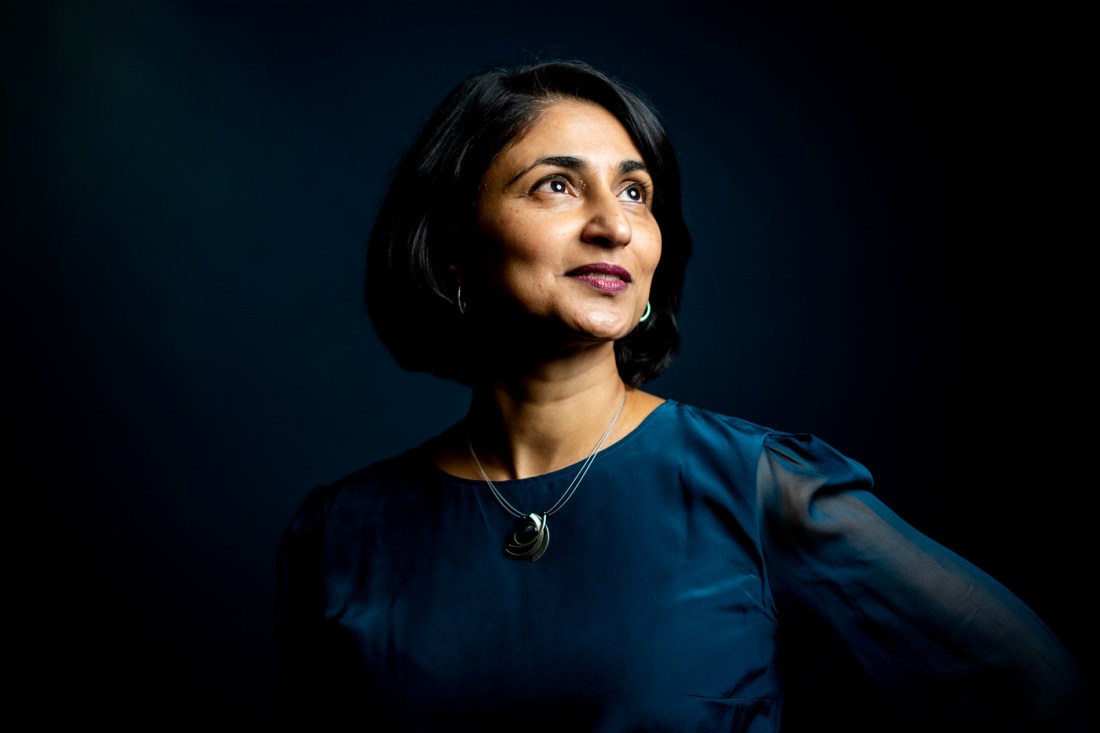Most conversations about menopause health revolve around things like hot flashes and brain fog, but new research points to another less discussed but no less impactful change to women’s health: voice changes.
All women undergo menopause, which occurs, on average, around age 52 at the point when menstruation stops occurring. In a comprehensive review of existing literature on menopause, researchers shine a spotlight on how menopausal vocal changes are both less understood and potentially more significant for certain women.
“Voice changes during menopause are subtle [and] gradual but for those who use their voice a lot — voice super users — these have massive implications on their daily life and also their profession,” says Rupal Patel, a professor of communication sciences and disorders and director of the Voice of Women Lab at Northeastern University. “Many times the other symptoms of menopause have more attention but voice changes, because they’re subtle and gradual, are not necessarily given the same importance in terms of affecting the individual’s life.”
During menopause, estrogen levels decrease, which changes tissue in the vocal folds. The end result is women’s voices get deeper and hoarser, and it can even get harder to project the voice.
In reviewing the literature around menopause, Patel and collaborators found that these changes are not well studied and “not necessarily well understood” in part because they are so gradual that most women might not notice them unless someone else draws attention to it. However, for women who use their voice a lot — teachers, reporters or voice actors, for example — these changes have much more of an impact, Patel notes.

“If you’re a teacher or in any one of these professions that uses the voice a lot, it can actually mean a difference between taking days off of work and being productive or not,” Patel says. “Voice-over actors who are females often complain that they’re no longer desirable voices.”
“It’s actually a big issue because most of the voice super users, 75% of them are women,” Patel adds. “If you think about teachers, 75% of teachers are women. If you think about voice-over artists, there’s just a high predominance of women.”
Another reason very little attention has been paid to menopausal vocal changes is that they have historically been conflated with other conditions. As much as Patel and her Voice of Women Lab, or VOxx Lab, are trying to analyze the voice as a marker for certain health conditions, she notes that the human voice is a “sensitive kind of cue.”
“If someone’s voice changes, we don’t know if it’s due to these hormonal changes or due to a neurological change,” Patel says.
However, Patel and her lab aim to fill the knowledge gap around these vocal changes that all women will go through in their lives. New technology, like artificial intelligence, has unlocked the potential to study the human voice in even more subtle ways.
Previously, Patel, through the company she founded, VocaliD, cloned the voices of female voice-over artists with their permission, partially as a way of preempting some of the issues women face later in their careers.
“They knew that people would have less interest in their voice as they aged, and they thought that would be an insurance policy,” Patel says. “If they banked their voice ahead of time, created their synthetic voice, they could still speak as their younger selves with their synthetic voice and then as their voice ages take on other roles.”
Finding the gaps that have existed in previous research has spurred new lines of research that Patel and her collaborators are in the early stages of pursuing. They include an examination of how hormone replacement therapy can help improve women’s voices later in life and even a study of how menopausal changes to the oral cavity can trigger sleep apnea in women.
The end goal of all this work, Patel says, is to better understand, and potentially remedy, something that for far too long has been understudied and underdiscussed, despite being a factor in half of the population’s lives.
“How can this be ignored for so long when 100% of women, regardless of whether you’ve had a child or not, are going to go through menopause?” Patel says.
Science & Technology
Recent Stories
Source link


